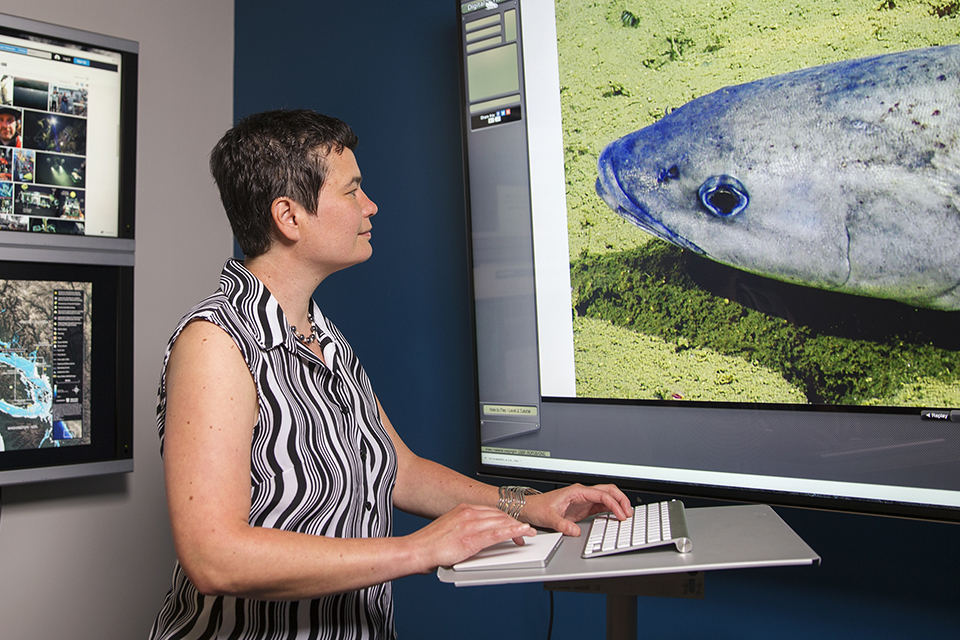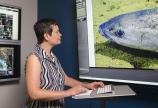World Oceans Day: Citizen scientists are the future

The impressive performance of hundreds of “citizen scientists” who signed on for a study counting deep-water sablefish off the British Columbia coast near Tofino is heartening proof that understanding our oceans is something we can all be part of, says one of the Ocean Networks Canada (ONC) scientists who co-authored the study.
That’s a key takeaway for World Oceans Day on June 8, notes scientist Maia Hoeberechts, ONC associate director of user services.
“This study is all about who can help science,” she says. “The theme for World Oceans Day this year is ‘Our Oceans, Our Future,’ which is all about building interest and ability for individuals to make a difference whether within their own circles, in the community, or at the global level.”
ONC is a University of Victoria initiative that has operated ocean observatories in the waters around Vancouver Island for a decade. Observations in the Arctic began five years ago, and more recently along the British Columbia coast from Tofino to Prince Rupert.
Since its earliest days, ONC has counted on citizen scientists from around the world to help monitor and comment on the real-time camera feeds from the observatories posted on the ONC website. With 90,000 hours of archived data generated to date, the participation of citizen scientists is essential to ensure more of that video data gets seen.
The fish-counting study asked volunteers to view deep-sea video samples from the observatory in Barkley Canyon and estimate numbers of sablefish, also known as black cod. The objective was to test how amateur scientists performed in comparison to the counts of an expert biologist, a class of undergraduate students, and a computer algorithm monitoring the same video segments.
All the human observers proved better at fish-counting than the algorithm. Those who had some training did almost as well as the expert. “Knowing that citizen scientists can be called upon to help experts analyze vast amounts of data generated by the observatories offers tremendous potential to increase the network’s vital impact, enrich human understanding, improve commercial fisheries management, and protect life under the sea,” says Hoeberechts.
“We need to move beyond the view that an expert is the only person who can analyze the data we are collecting,” she says. “It’s not new that citizens make scientifically useful observations, it’s new that science is taking them seriously.”
The Digital Fishers program is a collaboration between ONC and UVic’s Centre for Global Studies.
Ready to dive into the ocean without getting wet? Jump in at www.oceannetworks.ca from June 7 to participate in “Expedition 2017: Wiring the Abyss.” Watch underwater robots hard at work maintaining and expanding ONC’s west coast observatories and listen in on scientists aboard the exploration vessel Nautilus, all of it in real time. Follow #ONCabyss for updates and live dive alerts.
-- 30 --
For media use: Selected sablefish video clips from ONC’s deep-sea cameras are available here: https://drive.google.com/drive/folders/0B0AiULDviVmWTVU4Yng4WXRTMGc
Link to study: http://onlinelibrary.wiley.com/doi/10.1111/2041-210X.12746/full
More on this story: http://www.oceannetworks.ca/sablefish-study-reveals-citizen-scientists-are-expert-observers
Photos
Media contacts
Leslie Elliott (ONC Communications Manager) at 250-516-1246 or elliottl@uvic.ca

